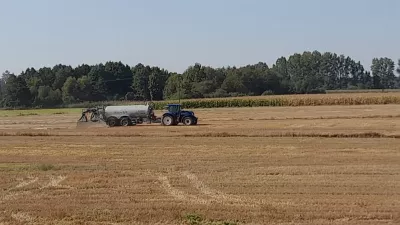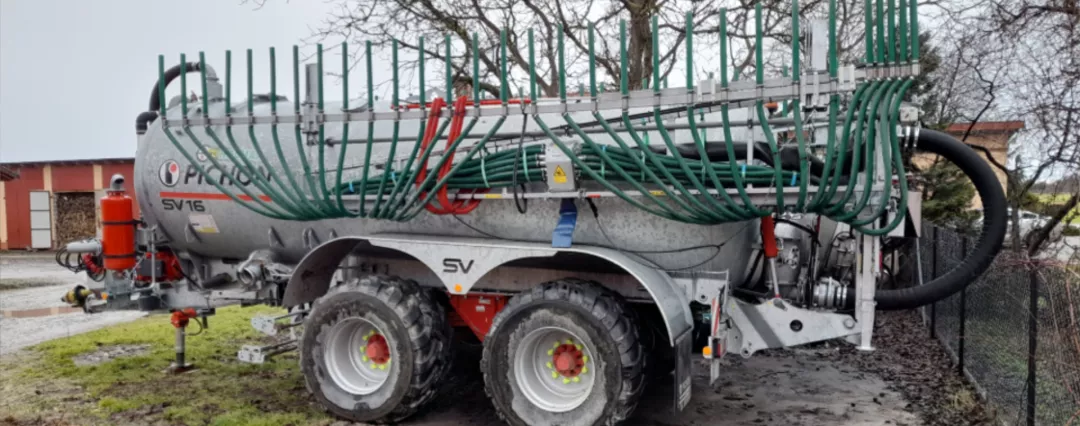General information
RDP Priority
- P4. Ecosystems management
RDP Focus Area
- 4B: Water management
RDP Measure
- M04: Investments in physical assets
Beneficiary type
- Farmer / land manager
Summary
Łukasz Czech is a Polish farmer who is passionate about finding innovative and unconventional solutions. His 60-hectare farm in the village of Królewski Dwór is focused on pork production and complemented by arable crops. The project helped the farmer make better use of pig slurry. One of the most innovative aspects of his farming practice is the way he has been able to reduce mineral fertiliser use for crops in favour of organic fertilisers, such as liquid manure and digestate from biogas plants. Lukasz used CAP investment support to purchase a new spreader for applying liquid organic fertiliser to improve the fertilisation process and deliver mineral nutrients to crops with increased precision. This applies data from annual tests for calculating the macronutrient and nitrogen content of the farm soils. The results of these tests are used to prepare yield maps that inform evidence-based precision dosing for the new sprayer.
Results
- Thanks to the new precision spreader, liquid organic fertilisers can now be applied in more optimal quantities at appropriate growth stages, which can help lead to increased crop productivity.
- The precise application of organic fertiliser helps minimise the risk of soil and groundwater-surface contamination from nitrates.

Promoter
AgroWe
Funding
Total budget: 185 000 (PLN)
RDP support: 92 500 (PLN)
Private/own: 92 500 (PLN)
Resources
Documents
Context
Łukasz Czech’s 60-hectare farm in the Polish village of Królewski Dwór specialises in pig farming, and also produces arable crops of winter wheat, winter rapeseed, and spring barley. Łukasz is committed to identifying, creating, and sharing innovative solutions in agriculture, and has been working on research and development actions with the Warsaw University of Life Sciences, as well as with various companies and several dozen other farms from various parts of Poland.
Among the novel activities carried out on his farm, annual tests for calculating the macronutrient and nitrogen content of the soil have been carried out. The results of these tests are used to prepare yield maps, and based on this, Lukasz has been able to reduce the use of mineral fertilisers in favour of organic fertilisers, such as digestate from biogas plants and liquid manure. He has also been able to add precision micronutrients that are not supplied through organic fertilisers, however, to optimise this process, Lukasz needed to invest in appropriate dosing equipment.
Objectives
The aim of this precision farming investment project was to streamline the fertilisation process and deliver mineral nutrients to crops with better precision.
Activities
- The farmer used CAP investment support to purchase a new Pichon spreader SV series for applying liquid organic manure, produced on the farm, as fertiliser.
Main results
- The new spreader enables more efficient delivery of key nutrients in optimal quantities and at the correct growth stage, leading to increased crop productivity.
- The spreader has helped reduce risks of soil and groundwater-surface contamination. It has also reduced the farm's greenhouse gas emissions.
- The precise delivery of fertilisers in the required amounts reduces the amount of fertiliser material lost - resulting in financial savings.
Key lessons
- Precision fertilisation has multiple benefits for the farmer, in both economic and environmental terms. It enables a reduction in the consumption of mineral fertilisers and leads to higher-quality yields.
- At the same time, precision fertilisation reduces the amount of nitrogen and GHG emissions released into the environment.
